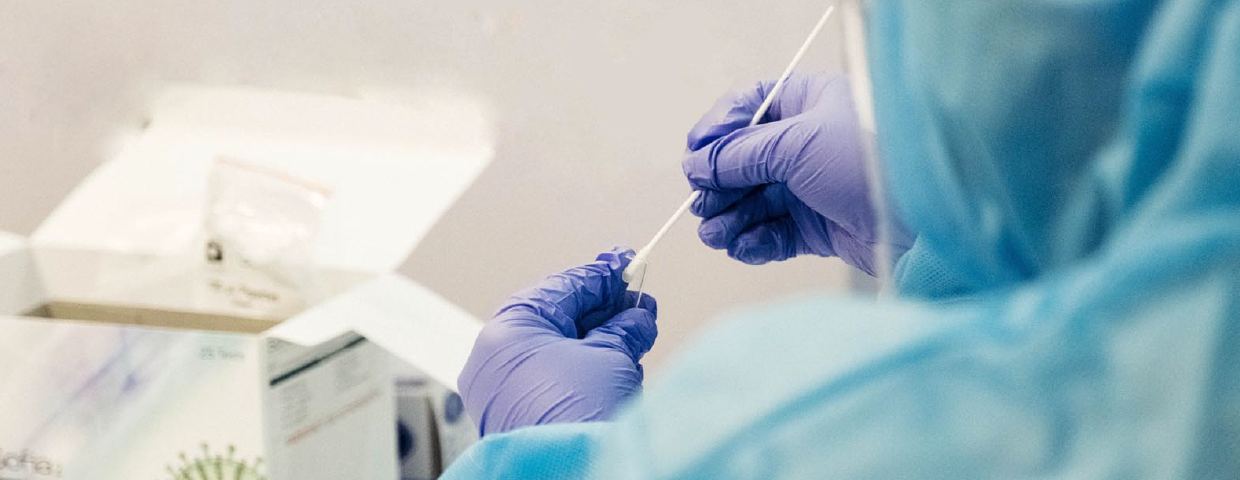 How the Supply Shortage is Affecting Laboratories
How the Supply Shortage is Affecting Laboratories
We are all aware of the impact that the global pandemic has had on our society. One of the impacts that affect laboratories such as Tide Laboratories is the shortage of many supplies and consumables that were once readily available. Due to COVID-19, laboratories and healthcare providers are seeing an ever-growing list of items that are difficult to come by at this time.
Before the pandemic, Tide Laboratories did not have an issue receiving supplies and there was no need for a strict protocol in reserving materials. Throughout the pandemic, supplies have been limited, impacting how our lab functions at times. Since then, Tide has learned a lot and is improvising without jeopardizing the integrity of our work and our client care.
At the beginning of the pandemic, many labs were forced to shut down or refocus their research on COVID-19, which shifted priorities from other testing obligations and resulted in expired inventory. With the concentration on COVID-19 testing, there were reports of shortages of COVID-19 test kits, reagents, and machines because of the immediate demand.
Manufacturers and Laboratories worked tirelessly to provide test kits and consumables to try and meet the ongoing demand by working overtime on the weekdays and weekends. According to the American Society for Microbiology, even normally well-equipped, high-complexity labs are still unable to get the kits they need to run SARS-CoV-2 assays.
As time progressed, a new challenge arose among laboratories and healthcare facilities. We started seeing a shortage that is now affecting routine non-COVID-19-related procedures and diagnostic testing.
How Are We Staying Aware?
In an effort to identify debilitating supply chain issues and alleviate strain, According to the American Society for Microbiology, has partnered with the Association for Supply Chain Management (ASCM) to develop an online platform that will monitor and report up-to-date laboratory shortages and demand. Analyzed data from 296 CLIA-Certified labs, is being reported and made publicly available. This data collection tool will provide a detailed overview (on a national, state, and regional level) of the most recent shortages of culture media, reagents, collection devices, and consumables that can significantly impact day-to-day testing:
the list provided includes but is not limited to the following non-COVID-19 shortages for the week of Nov. 10-17, 2020:
- 4% of labs have a shortage of commercial testing kits for SARS-CoV-2.
- 4% of labs have a shortage of non-COVID-19 testing supplies for the detection of routine bacteria (including the bacteria causing strep throat, pneumonia, bronchitis, and urinary tract infections).
- 8% of labs have a shortage of supplies for the molecular detection of sexually transmitted infections.
- 3% have a shortage of supplies for mycobacteria testing (including supplies for tuberculosis (TB), Buruli ulcer, and pulmonary nontuberculous mycobacterial disease testing).
- 1% of labs have a shortage of supplies for routine fungal testing (ranging from superficial, localized skin conditions to deeper tissue infections to serious lung, blood (septicemia), or systemic diseases).
There is also a large shortage of daily consumables used to perform routine procedures, including culture and transport media, gloves, swabs, pipettes, pipette tips, and collection tubes.
How Tide Laboratories is Currently Overcoming the Supply Shortage
Tide Laboratories has also been impacted by the supply shortage, especially the PCR-related supplies that are currently in high demand. The volume of tests performed at Tide has dramatically increased and our team has implemented a new system to track inventory and broaden our supply vendor options. As we develop relationships with new vendors and receive new products, our team verifies the quality of the product and ensures that it works properly for our lab procedures. Tide Laboratories has been able to provide desired testing and supplies to those in need without impacting the highest level of care for our customers.
To learn more about COVID-19 Testing with Tide and DTPM, visit our COVID-19 Testing page.
